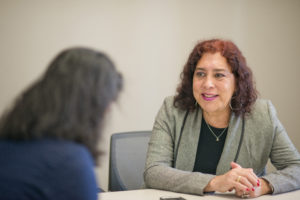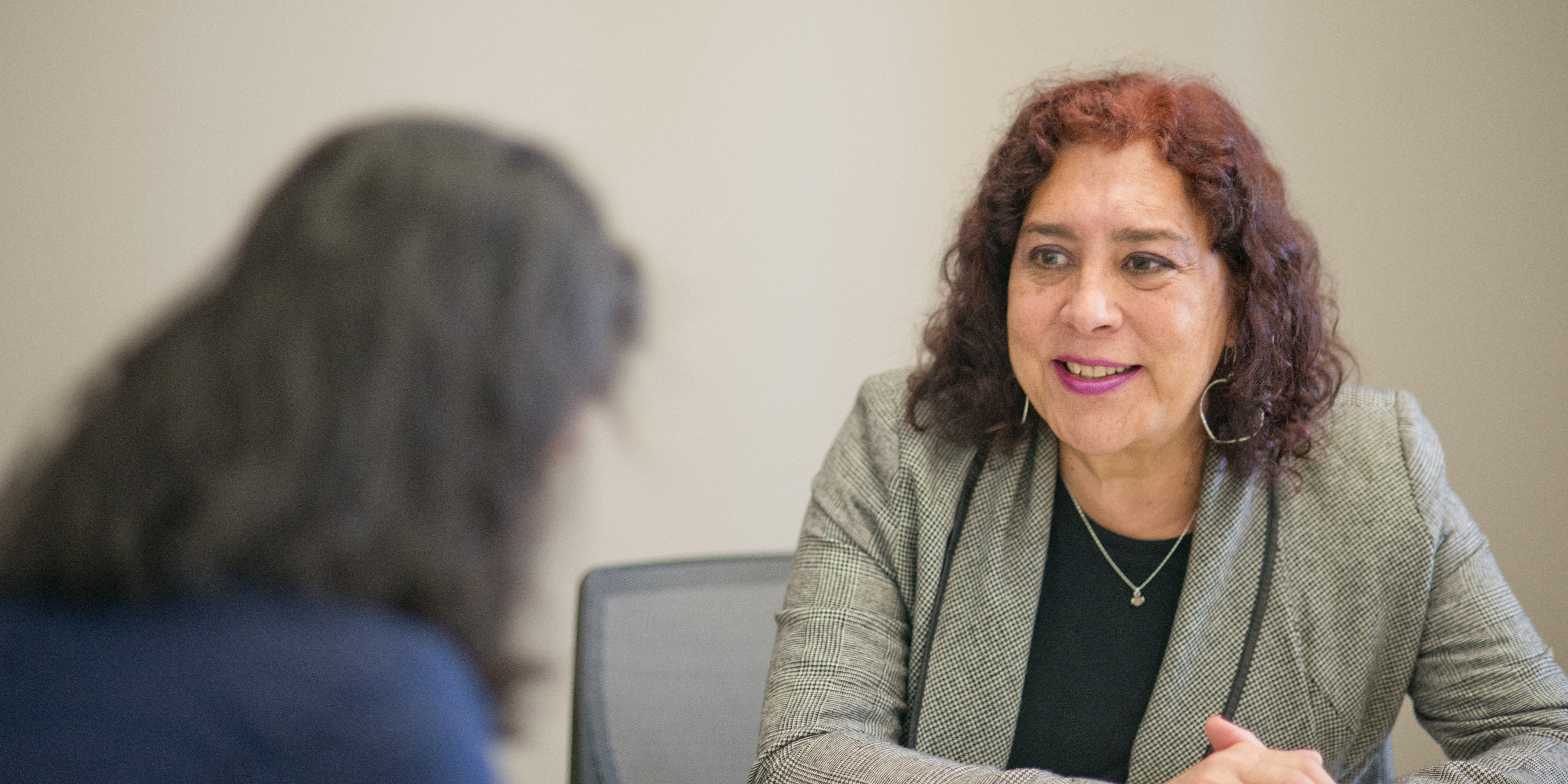
Tamara Adrián, the first transgender woman to serve in the Venezuelan legislature, visited Stanford last week to discuss LGBTQ+ rights in Latin America. She is the second transgender person elected to a national legislature in the Americas and is the co-president of the International Lesbian Gay Transgender Law Association (ILGALaw).
The Daily sat down with Adrián to discuss her longstanding activism for LGBTQ+ communities and her experience serving in Venezuelan government.
The Stanford Daily (TSD): How has the role of activism played out in your life, and how did it rise to the level of importance it has today?
Tamara Adrián (TA): I am not a strong believer, but I recall that the Bible says that those who are receiving a lot must give a lot… The big struggles that the trans population face are exclusion, segregation and lack of opportunity. When you are able to overcome these social limitations imposed on you, then you are obliged to do a little bit in order to change the situation of the majority of trans persons that are excluded and segregated.
Back in 2005, I had the opportunity to go [for] the first time to the former Council of Human Rights [in Geneva]. I had two minutes to talk about the situation of trans people around the world. At the end of this session, one member told me, “Now I know why this an issue of human rights, but [it still might] take 15-20 years to talk about this issue.” It took one year.
When you have a pressing situation and you have a critical mass of activists and people engaged in the field, you are able to talk very rapidly about [trans] issues at the international level. And this is why every single body of the U.N. has issued its own perspective on gender identity and gender expression, and that’s a change that’s impacting the day-to-day life of people all around the world. Because when you talk about [trans issues], you understand it’s not a choice.
Some people say it’s fashionable to be transgender. There is nothing fashionable about being a trans person. It [means] being exposed to the worst kind of violence, segregation and discrimination than you can imagine, so nobody in this world will be [trans] just because it’s fancy or it’s fashionable. It’s a matter of life and death.
TSD: How has your experience been as the first transgender person on the Venezuelan legislature, and how do you convince your colleagues to join the cause for LGBT equality?
TA: I am a retired law professor so I have [taught] several generations of lawyers. I’ve been considered to be a good teacher from my students — they either hate me or they love me, there is no middle. When you are trying to convince others, what you are doing is teaching.
The big problem relating to LGBT rights and the entire world is the lack of information. If you’re informed, you may overcome your own prejudices in order to understand the struggle of the other — think about what happened here in the U.S. regarding racial segregation. You had a group of white people who were informed about the struggle faced by black people and their fight for equal rights. They were fighting for equal rights, not better rights, but equal rights… This is why racial fights and activism are so close or so similar to LGBT activism and women’s activism.
In the past century, women were fighting for equal rights to vote, equal rights to have property, equal rights to study, equal rights to become a professional. It’s not that women wanted to be men, they wanted to have the same opportunities and the same possibilities and rights that men have.
The bottom line is that when you fight for equal rights, you have to convince people because in principle, all the prejudices are internalized. You naturalize them [by saying], “Oh, it’s natural that women are less capable than men because they are different. They are dumb, that is why they have to cook and wash. Maybe there are a few women smart enough [to do other things], but that doesn’t mean we have to change the rules in order to let them study.”
For trans women, people may say, “Oh, if you are a woman, then you might like to be a hairdresser or engaged in sex work because that’s what women are willing to do.” These stereotypes are being applied to trans women now, and with regard to trans men, it is even more difficult.
TSD: When you are trying to convince your colleagues, do you believe that they are truly listening, or are there still difficulties ahead?
TA: It depends. Some who are strong religious believers are having more difficulties in getting in touch with LGBT rights. Some have the reasoning that, “I can help protect you against discrimination, but I cannot agree on recognition of identity or marriage or things like that.” [You have to] make them understand that civil rights contain “civil.” They are not religious rights. For instance, we have marriage and divorce and remarriage and various recognitions of families. Some believe in not divorcing, but do not try to impede others in their divorce because that’s their right. One thing has nothing to do with the other.
I think in general, all over the world, there is a generational gap in regard to [LGBT] issues. If you are more than 40 years old, it is likely that you are more reluctant in accepting diversity and if you are under 35, it is more likely that you are more accepting of diversity.
TSD: How can students, whether in the U.S. or Venezuela or around the world, become involved in promoting or fighting for LGBT rights or equal rights?
TA: Globally, the fight faces different kinds of barriers. I am engaged at the international level, so I have the opportunity to understand the struggles in Africa, Latin America, the U.S., Europe, China and other countries, so I have a global perspective. I feel that in every single part of the world, you have people that are willing to be engaged in this fight. Their ability to create networks and sympathies and alliances with non-LGBT people is important because this is how you create a critical mass. I always say LGBT people are minorities; you do not inherit it, you do not get it by touching a LGBT person, it’s not a contagious disease. It’s something you’re born with.
In order to create a critical mass, you must create links with other social groups, particularly women and other minority groups. The ability to create this network depends on the environment you’re in. But I see a strong movement in many, many countries, and you see that people are organized, even in the shadows. That’s why now you have global information that 10 years ago you didn’t have.
This transcript has been lightly edited and condensed.
Contact Aparna Verma at averma2 ‘at’ stanford.edu.
